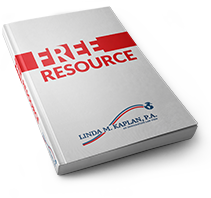
Most people are surprised to hear that undocumented immigrants file income tax returns even though they are ineligible to obtain a social security number and ineligible for social security benefits.
Obviously, undocumented persons pay sales tax and property tax. Some own their home or other real estate, so they pay property tax directly. If they rent their home, then they indirectly pay property taxes as part of their rent payment.
All wage earners—regardless of their immigration status—are required to pay federal income tax on their earnings. Undocumented persons can’t obtain social security numbers, so they must use an ITIN—Individual Taxpayer Identification Number. The IRS issues ITINs to taxpayers and their dependents who are ineligible to obtain a Social Security number (SSN). The ITINs are issued specifically to file returns and pay federal income taxes. Still, the ITIN may be accepted for other purposes, including opening a bank account or obtaining a mortgage. This may depend on which bank they deal with, but many of my undocumented clients have been able to open bank accounts and even get a mortgage to purchase a home with an ITIN and no social security number.
I have been asked why undocumented persons would file a tax return. Some do this simply to comply with the law, but there are other good reasons to file returns and pay taxes. If an undocumented person may be eligible for legal status in the future, it allows them to show “good moral character” by complying with the law. If they may be eligible in the future, it is also a way to prove they have been employed and lived continuously in the U.S.
It is necessary to file a tax return to claim some important economic support, such as the Child Tax Credit (including the refundable portion). A return is also required to claim insurance premium tax credits for family members such as U.S. citizen spouses and children who are eligible for health insurance under the Affordable Care Act. Without the insurance premium tax credits, most would not be able to afford health insurance for their U.S. family members. To be clear, undocumented persons are not eligible for health insurance coverage, but many undocumented people are in what is termed “mixed-status families,” so have U.S. spouses and children that are eligible for the Affordable Care Act insurance.
An ITIN does not provide permission to work in the U.S. and does not provide an entitlement for Social Security Benefits. If a person with an ITIN obtains a Social Security number, then they may no longer use the ITIN.
When the IRS first started issuing ITINs, people were hesitant to apply for one because they thought that this might be reported to Immigration and result in deportation. This is generally not a problem. The IRS has strong privacy protections that prohibit them from disclosing taxpayer information including to other federal agencies such as immigration. Other federal agencies may obtain a court order for taxpayer information if it is needed for a nontax criminal investigation.
All ITINs issued before Jan 1, 2013, are required to be renewed. An ITIN issued after December 31, 2012, remains valid without a need to renew it unless that person fails to file a tax return (or is not included on a tax return as a dependent) for three consecutive years.
- Refugees, Asylum, and other humanitarian relief. - February 9, 2024
- Florida Anti-Immigrant Legislation - May 30, 2023
- Undocumented Immigrants Pay Taxes—Even Income Taxes. - April 25, 2023


